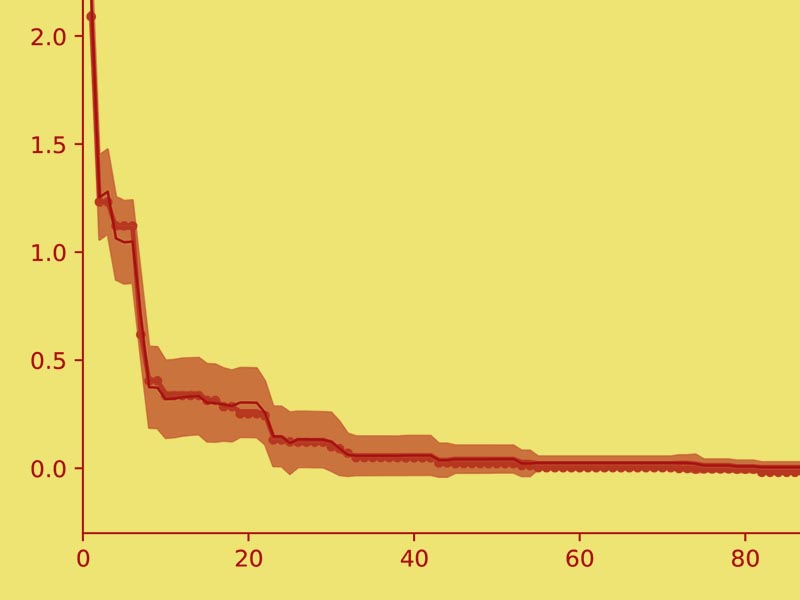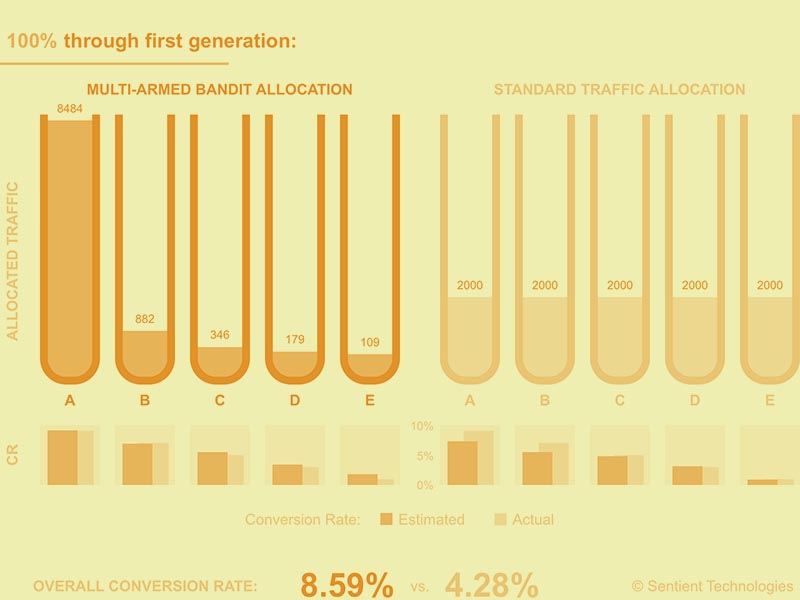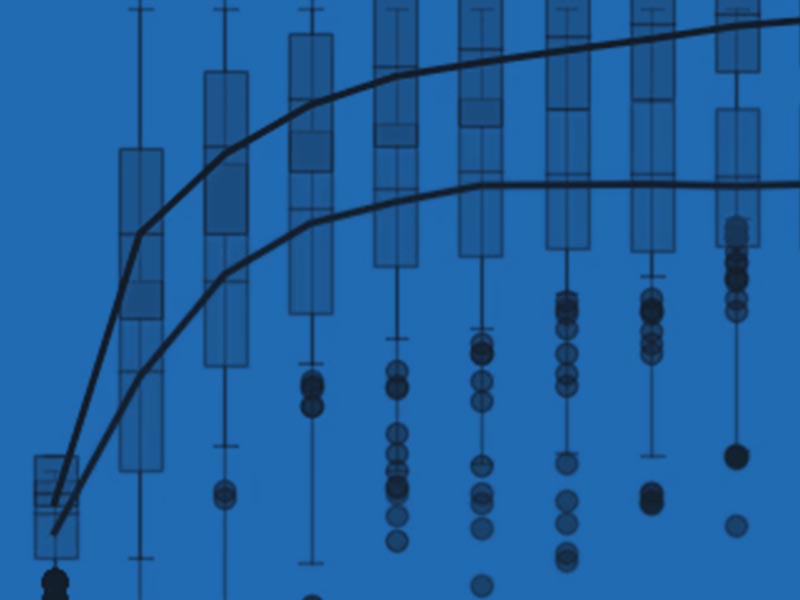Evolutionary computation (EC) has been an active area of research for several decades. It has come a long way in terms of mathematical theory as well as methodology, however, the most impressive achievement is a continuous stream of solutions to challenging problems. For instance, the annual competition on Human Competitive Results at the GECCO conference provides a fascinating and increasing array of solutions that equal or exceed those of humans, ranging from game agents to software repair to designs of experiments in physics.
The purpose of this section is to demonstrate that the EC technology is ready for the next step, i.e. to be applied to real-world problems, to be commercialized, and to change the world! The Hard Problems section focuses on demonstrating the raw power of EC on solving hard problems; this section focuses on the reliability of EC that makes it possible to build products on it.
First, Paper 1, on Sentient Ascend gives an overview of one such product: conversion rate optimization of web interfaces through evolutionary design. Ascend is disruptive technology based on EC. While the state of the art is based on statistical testing of a small number of human designs (A/B testing), Ascend makes it possible to search a vast space of possible designs to find better ones automatically: “It is AI, not A/B”. Demo 1.1 presents a case study of Ascend on a real website, showing how it discovers designs that are both better than human design, and surprising, i.e. something humans would be unlikely to discover.
Interestingly, building such a real-world product has highlighted fundamental scientific questions that need to be answered for such a product to be effective. For people used to testing statistical significance, it is important to demonstrate how a method that evaluates candidates only approximately, can make progress. Demo 1.2 below, for the first time, demonstrates the intuitive principle (using a Gaussian Process model) that significance accumulates over evolution through extensive testing of the components. This principle is what makes evolution effective in large search spaces.
Third, Papers 2 and 3 and Demos 2.1-2.3 show how good results can be reliably extracted from evolution. Given the population-based search approach, and the fact that evaluations of candidates are unreliable, evolution is faced with a multiple-hypothesis problem: The candidate that evaluates the best most likely does so because it got lucky during evaluation. When it is deployed in the future, it will therefore perform worse than expected—another candidate would have performed better, but it was overlooked because it was not as lucky. The papers and the demos show how neighboring candidates can be used to obtain a more reliable estimate, and how the estimate can be improved by best-arm selection in the multiarm bandit framework. Interestingly, this technique can also be used to improve performance in a campaign context, i.e. where evolution needs to be done during a fixed-length campaign, and the performance of all evaluations during that time needs to be maximized.
Thus, building EC applications for the real world requires solving some interesting and fundamental scientific problems. These solutions make the solutions reliable and understandable—and therefore make it possible to industrialize the creativity of EC. EC-based optimization is now ready to change the world!
Paper 1: R. Miikkulainen, N. Iscoe, A. Shagrin, R. Rapp, S. Nazari, P. McGrath, C. Schoolland, E. Achkar, M. Brundage, J. Miller, J. Epstein, G. Lamba (2018). Sentient Ascend: AI-Based Massively Multivariate Conversion Rate Optimization. In Proceedings of the Thirtieth Conference on Innovative Applications of Artificial Intelligence (AAAI / IAAI-2018, New Orleans, LA; IAAI-2018 Deployed Application Award; GECCO-2017 Human-Competitive Results Bronze Award).


Paper 2: Qiu, X. and Miikkulainen, R. (2018). Enhancing Evolutionary Optimization in Uncertain Environments via Multi-Armed Bandit Algorithms. In Proceedings of the 31st Innovative Applications of Artificial Intelligence Conference (IAAI-2019, Honolulu, HI).


